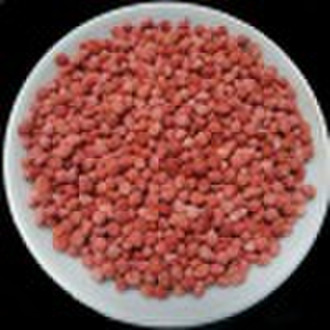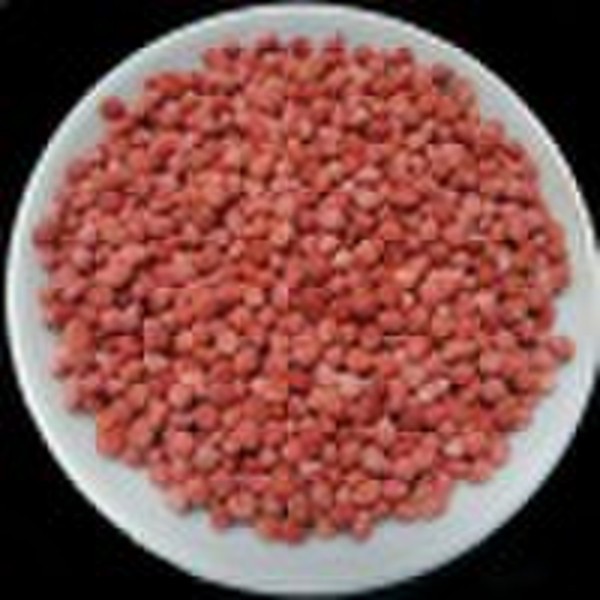NPK15-15-15

elven huang
联系人姓名
基本信息
| 分类 | Compound Fertilizer |
|---|
Fertilizer is a material that is added to the soil to supply one or more elements required for plant growth and productiveness. The major three elements are nitrogen, potassium and phosphorus), the secondary elements are calcium, sulfur, magnesium, and other elements are boron, manganese, iron, zinc, copper and molybdenum. Fertilizers enhance the natural fertility of the soil or replace the chemical elements taken from the soil by harvesting, grazing, leaching or erosion. Organic fertilizers include poperly managed barnyard manure, compost and green manure. Manure contains nitrogen and phosphate content. It is sometimes modified with superphosphate to make it a better balanced fertilizer. Compost, decayed to a relatively stable, amorphous state, is made from plant materials mixed with manure and some soil. Green manure is a herbaceous plant material plowed into the soil that has not undergone decay. Artificial fertilizers are inorganic fertilizers formulated in appropriate concentrations and combinations supply three main nutrients: nitrogen, phosphorus and potassium (N, P and K) for various crops and growing conditions. N (nitrogen) promotes leaf growth and forms proteins and chlorophyll. P (phosphorus) contributes to root, flower and fruit development. K (potassium) contributes to stem and root growth and the synthesis of proteins. The common inorganic fertilizers include ammonia (82% nitrogen), NPK combinations, urea (46% nitrogen), superphosphate, mono and dibasic ammonium phosphates (containing nitrogen and phosphate), calcium ammonium nitrate, potassium chloride (muriate of potash).
交货条款及包装
Packaging Detail: 25/40/50 kg woven bags Delivery Detail: one week to one month
端口: Fangcheng
付款条款
Letter of credit
Telegraphic transfer
Western Union
-
支付方式
我们接受:









